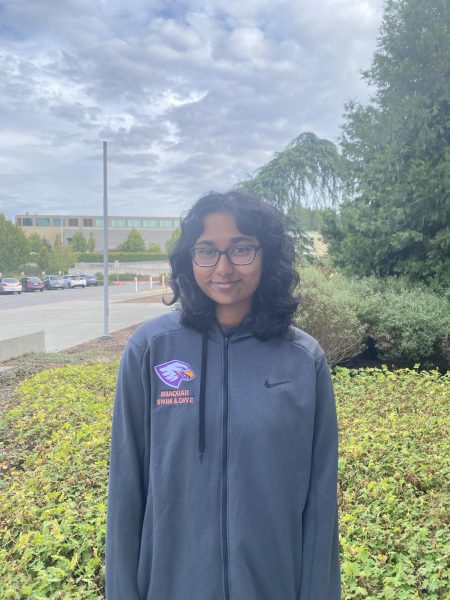The Repercussions of Social Media
November 18, 2022
“Crazy.” “Fake.” “Uncontrolled influence.” These are just some of the words that IHS students have to describe social media – a rampaging force in many lives in the 20th century. With the rising usage of the internet comes development in online communities, whether this takes the form of online reality or social media. These communities are tightly knit throughout and formed throughout various media, often feeding viewers a glimpse of their beliefs.
One way the ideas within these communities are perpetuated is through influencers, whom senior Natalie Null describes as someone who “people draw inspiration and advice from.” However, the heightened profile of influencers may also come with downsides. Freshman Kyle Heuchert elaborates on this, stating, “Sometimes [influencers] do not take accountability for their actions, and people who watch them see this, which can be problematic.” Influencers’ irresponsible actions and messages can easily be spread throughout their account and reach a large number of susceptible audiences, spreading ideas they may not even have meant to spread in the first place. Although influencers may be able to then take accountability for their actions, there is no guarantee that audiences will be able to see this; in mediums like YouTube shorts or the Instagram explore feature, viewers often scroll through saturated content, meaning that they may encounter problematic messages and never see the influencer taking accountability.
Social media especially influences younger viewers, as they have not yet built up mental defenses to filter out false or misleading information, and as a whole are more susceptible to outside ideas. The National Library of Medicine National Institute for Biotechnology Information states, “Young children do not understand the concept of a sales pitch. They tend to believe what they are told and may even assume that they are deprived if they do not have advertised products.” Younger viewers are more likely to accept an opinion for truth, and take it as a reality, something that is extremely dangerous to do on sites that allow for spread of unverified information. Despite the belief that children should not have social media until a certain age, this still happens. Sophomore Sarah Cizek states that they “started using social media around the end of sixth grade.” This early use of social media can have profound impacts on youth development, Null states,“as I developed my beliefs on different things, my viewpoint on things definitely changed by looking at what people were saying.” She goes on to highlight that social media also brought awareness to her, as she learned “about topics that people posted on their Instagram story that I would not have learned about otherwise.” The ability of social media to bring light to even the smallest communities is both a blessing and a curse, depending on the viewpoint of the beholder or consumer.
With this ability comes the development of exclusionary groups, one such example being the manosphere. Defined by junior Riddhi Sharma, the manosphere consists of “a group of people that believe they are better than others because of something that they had no control over; something they got by luck.” This rings true, with the manosphere consisting of individuals that actively work to destroy ideals of gender equality. Null describes a prominent member of this community, Andrew Tate, stating, “[He] was a very popular influencer who spread a lot of [misogynistic] messages about women, and [talked about many other topics]… he got banned and almost arrested for assault. He was very sexist, and many young, impressionable boys were watching his videos and learning how to talk about women.” The imprinting of ideals among younger social media users can allow very polarized communities to grow, as they lack the mental defenses to analyze the statements that influencers make.
As our usage of social media evolves and we become more deeply engrossed in it, it is important to realize the unreliability of social media as a means of education. While it is a nice starting point, it is important to, as Null states, “look at the different viewpoints of a topic.” By taking a viewpoint found on social media as a topic to look into rather than a fact, one can educate themself and be able to form their own stance, rather than blindly believing the words of another person.
With proper precautions, social media can be a wonderful place to discover new things and connect with others. Huechert says, “My favorite fun fact that I have learned because of social media is that it would take two million dollars to fill up an olympic sized swimming pool with apple juice.” He goes on to explain that “the sheer amount of information that social media holds [makes it so appealing].” Sharma adds on to this, stating that she “has met some really cool people” because of social media. If one takes care to balance the instability of social media through caution and fact-checking, it becomes a beautiful opportunity to learn, grow, and connect.


